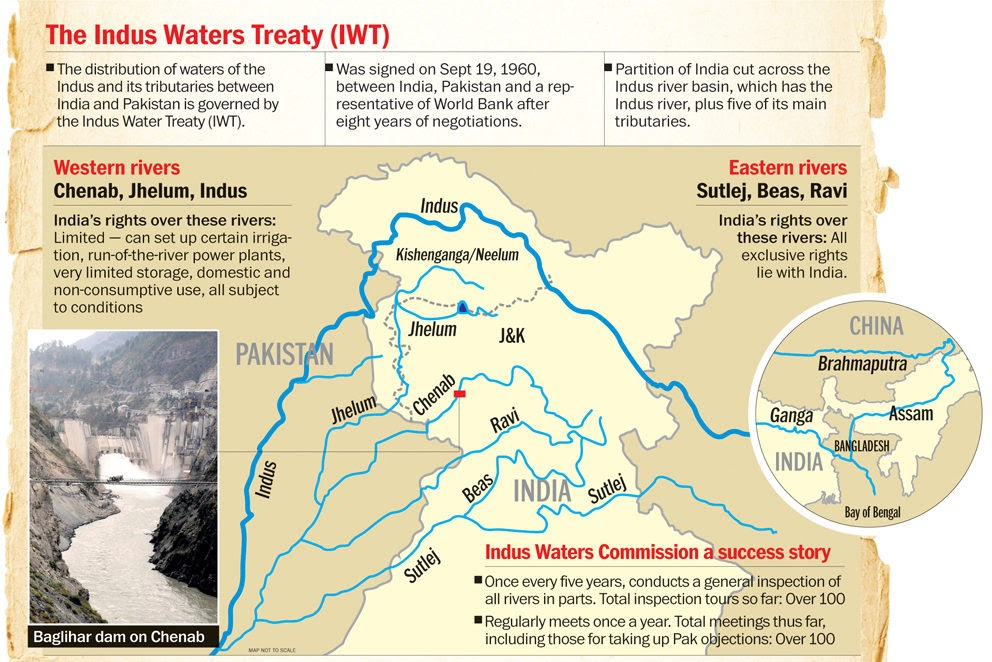India to Freeze Talks with Pakistan on Indus Waters
The Hindu / Why India Wants 'Review & Modification' of Indus Waters Treaty
Indian Express
Context
- Approximately a year-and-a-half after New Delhi issued a notice to Islamabad for the “modification” of the Indus Waters Treaty (IWT) in January 2023, India has once again sent a formal notice to Pakistan seeking a “review and modification” of the treaty.
Indus Waters Treaty (IWT)

About
- The treaty was signed on September 19, 1960, in Karachi by then Prime Minister Jawaharlal Nehru and then Pakistan President Mohammed Ayub Khan for the management of water resources in the Indus River system.
Mediator
- The World Bank served as the mediator in the negotiation of the treaty.
Water Sharing
- India is granted “unrestricted use” of the three Eastern Rivers (Beas, Ravi, Sutlej) except as otherwise expressly provided in the treaty.
- Pakistan retains control over the three Western Rivers (Indus, Chenab, Jhelum).
Reasons for India to Renegotiate the Treaty
- Change in Population Demographics
- Increasing population in India necessitates a reassessment of water allocation to meet growing demands.
- Environmental Issues
- Current environmental challenges, including climate change impacts on water resources, require a modification of water-sharing mechanisms.
- Clean Energy Development
- To meet India’s emission targets, there is a need to accelerate the development of clean energy sources.
- Impact of Cross-Border Terrorism
- Persistent cross-border terrorism has raised security concerns affecting resource management.
- Hydropower Projects in Jammu & Kashmir
- India aims to address the needs of two important hydel (run-of-the-river) power projects in Jammu and Kashmir:
- Kishanganga Project
- Ratle Hydroelectric Project on the Chenab River in Kishtwar district.
India's formal request for a review and modification of the IWT reflects its changing priorities and the need to adapt to contemporary challenges in water resource management.